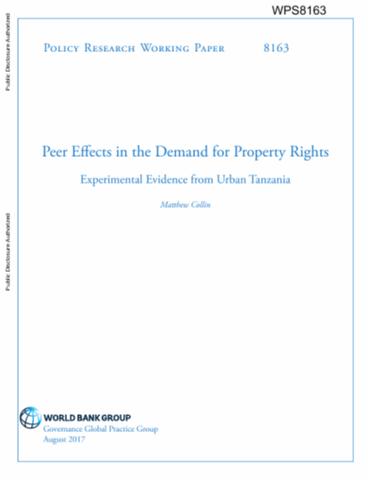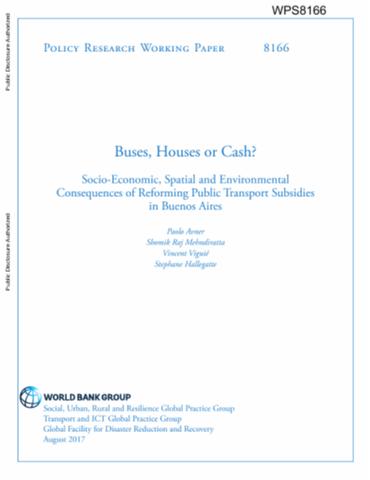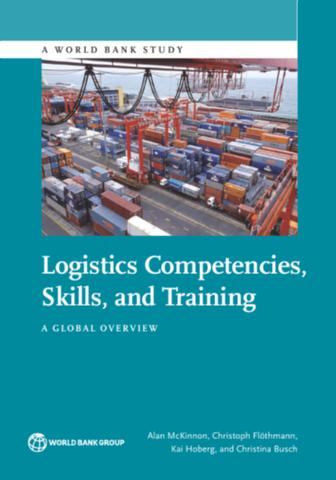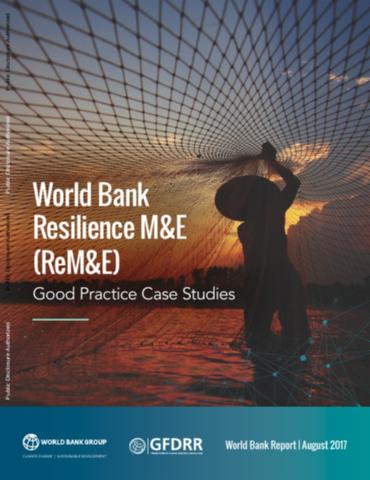The World Bank is a vital source of financial and technical assistance to developing countries around the world. We are not a bank in the ordinary sense but a unique partnership to reduce poverty and support development. The World Bank Group has two ambitious goals: End extreme poverty within a generation and boost shared prosperity.
- To end extreme poverty, the Bank's goal is to decrease the percentage of people living on less than $1.25 a day to no more than 3% by 2030.
- To promote shared prosperity, the goal is to promote income growth of the bottom 40% of the population in each country.
The World Bank Group comprises five institutions managed by their member countries.
The World Bank Group and Land: Working to protect the rights of existing land users and to help secure benefits for smallholder farmers
The World Bank (IBRD and IDA) interacts primarily with governments to increase agricultural productivity, strengthen land tenure policies and improve land governance. More than 90% of the World Bank’s agriculture portfolio focuses on the productivity and access to markets by small holder farmers. Ten percent of our projects focus on the governance of land tenure.
Similarly, investments by the International Finance Corporation (IFC), the World Bank Group’s private sector arm, including those in larger scale enterprises, overwhelmingly support smallholder farmers through improved access to finance, inputs and markets, and as direct suppliers. IFC invests in environmentally and socially sustainable private enterprises in all parts of the value chain (inputs such as irrigation and fertilizers, primary production, processing, transport and storage, traders, and risk management facilities including weather/crop insurance, warehouse financing, etc
For more information, visit the World Bank Group and land and food security (https://www.worldbank.org/en/topic/agriculture/brief/land-and-food-security1
Resources
Displaying 101 - 105 of 4907Peer Effects in the Demand for Property Rights
This paper investigates the presence of endogenous peer effects in the adoption of formal property rights. Using data from a unique land titling experiment held in an unplanned settlement in Dar es Salaam, the analysis finds a strong, positive impact of neighbor adoption on the household's choice to purchase a land title. The paper also shows that this relationship holds in a separate, identical experiment held a year later in a nearby community, as well as in administrative data for more than 160,000 land parcels in the same city.
Buses, Houses or Cash?
Transit subsidies in the urban area of Buenos Aires are high, amounting to a total of US$5 billion for 2012. They have been challenged on several counts: suspected of driving urban sprawl and associated infrastructure costs, diverting resources from system maintenance, and failing to reach the poor among others. In this context, this paper examines the impacts of cost recovery fares under a range of different policy scenarios that could cushion the impact of fare increases.
Logistics Competencies, Skills, and Training
Despite the spread of automation and new supply chain management paradigms, logistics remains dependent on a rather specific set of skills and competencies, whether for managerial, administrative, or blue-collar jobs, such as trucking or warehousing. This dependence implies that the logistical performance of businesses, industries, and nation states is strongly influenced by the quantity and quality of the workforce.
World Bank Resilience M&E
These case studies were developed as part of the World Bank's Results Monitoring and Evaluation for Resilience Building Operations (ReM&E) project, which aims to develop and increase the application of systematic, robust, and useful approaches to monitoring and evaluation (M&E) for resilience-building projects/programs within the World Bank. The case studies propose to foster a grounded understanding of good ReM&E practices through real-world examples.
World Bank Resilience M&E
These case studies were developed as part of the World Bank's Results Monitoring and Evaluation for Resilience Building Operations (ReM&E) project, which aims to develop and increase the application of systematic, robust, and useful approaches to monitoring and evaluation (M&E) for resilience-building projects/programs within the World Bank. The case studies propose to foster a grounded understanding of good ReM&E practices through real-world examples.









